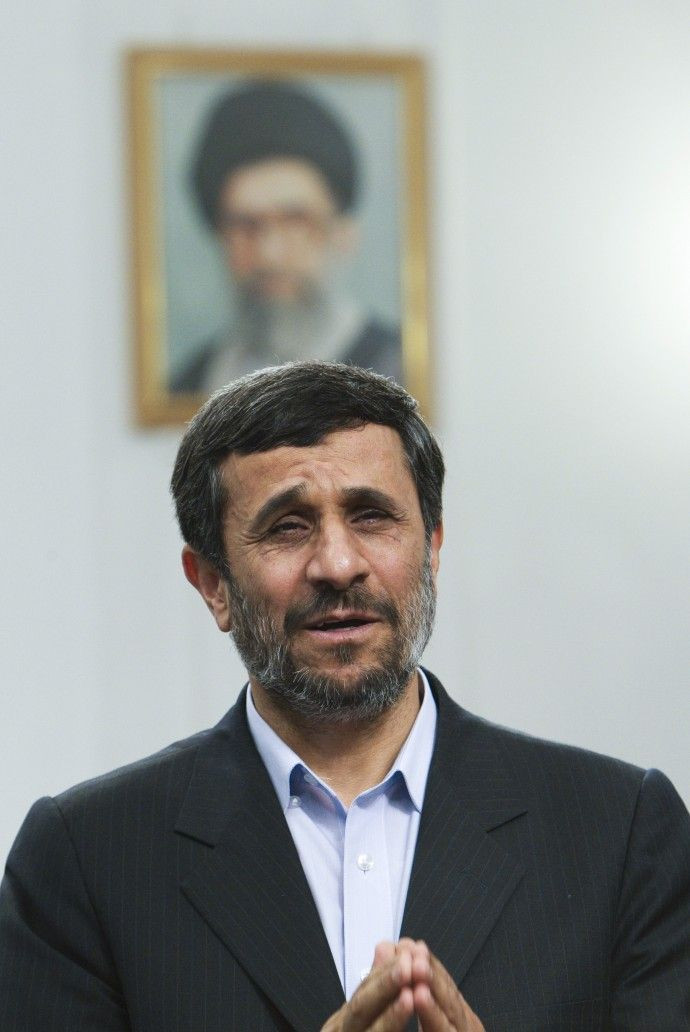Iran Strait of Hormuz Sanctions: Iranian-Americans Speak Out

In the United States, there is a significant population of Iranians who emigrated from their native country to various cities across the United States. Many, if not most, of these individuals still have ties to Iran: their family, their culture.
Tensions are dramatically rising in the Middle East. Iran continues to flex their muscles in the Strait of Hormuz, a vital oil passage, threatening to shut it down. Iran's nuclear program has forced the United States to condemn the nation and its policies by imposing sanctions on the Persian country.
Sanctions have been in place for the 30 years, said Jamal Abdi. Iranian-Americans are feeling this. Abdi is the policy director for the National Iranian American Council, or NIAC. Abdi said that many Iranian-Americans, including himself, still have many family members in the country.
A lot of us feel like Iranians and Iranian-Americans are caught between a rock and hard place, said Abdi. Many Iranians fled the oppressive government for a better life. However, sanctions imposed by the United States, he continued, only hurt the family and friends they left behind. Abdi said, while he understands the use of the economic tactics on Iran, the sanctions only increase hardships on ordinary people. The ordinary people are the individuals who bear the burden of the embargos employed by the United States, said Abdi.
Our community is still very connected to their family in Iran, he said. Something like a million Iranians travels back to Iran every year.
Iranians in the United States often send money back to their families. However, this becomes very difficult while there are increased tensions and increased sanctions.
Even legitimate, licensed and perfectly legal actions are difficult, said Abdi. He explained a process where many Iranian-Americans, desperate to send money back to their family still in Iran will partake in an illegal transfer of funds. Individuals in Iran will agree to pay the family a certain amount of money and in return, the Iranian-Americans will then provide money to a person in the United States. Abdi says this is a form of money laundering.
What a lot of people end up doing is taking a big risk and sending money through these channels, he said.
Pushing for more sanctions would not stop a country such as Iran, said Iranian-American Bahare who did not want to reveal her last name. Bahare, 29, who currently resides in Edison, N.J., moved from Iran to Sweden in 1988 and moved to the United States shortly before 9/11. It will only create a bigger gap between Iran and other nations and make things much worse than it is.
Abdi agrees that sanctions might make things worse and just continue a perpetual cycle. He said the same thing happened in Iraq. There were dramatic sanctions put in place that ended up having a powerfully negative impact on the citizens of the country, Abdi said.
We are very concerned that this could lead to war, he said. However, Abdi's personal connection to Iran does not mean that thinks the United States should go easy on the country. He said the Iranian community in the United States wants a solution that serves U.S. interests, but does not harm the innocent civilians of the country.
We feel like the pressure track is exhausted, he said. Out of fear for his family's safety, he is hoping that President Obama will break from the policies of the Bush administration and work to establish a robust, diplomatic channel with Iran.
© Copyright IBTimes 2025. All rights reserved.





















